HumNavTech Hackathon
Explore how we can rethink
Navigation Solutions
making them more human-centric to encourage urban exploration
March 13-14-15, 2024
Marineterrein
In collaboration with
Responsible Sensing Lab
The Challenge
The Context
The advent of navigation apps like Google Maps, Tomtom, and OpenStreetMap, coupled with the widespread use of GPS-enabled smartphones since the early 2000s, has significantly transformed mobility and behavior in urban environments. The convenience of never getting lost and seamlessly navigating unfamiliar cities has become a hallmark of contemporary navigation systems.
However, amid this technological progress, we have witnessed the erosion of certain valuable elements. The challenge is to reintegrate these elements into navigation apps, enhancing their overall functionality.
One noticeable drawback is the apparent hindrance to social interaction, particularly in the act of asking for directions. Everyday social exchanges, such as seeking guidance, have been linked to happiness. Additionally, existing navigation apps fail to encourage individuals to leverage their own city knowledge for wayfinding, leading to a decline in mental mapping skills. Is there not inherent value in navigating the urban landscape independently? And since we are never getting lost again are we missing out on more spontaneous encounters?
The significance of landmarks, like church towers, has diminished as the mode of traversing the city no longer relies on recognizing these distinctive features. The distinction between locals and non-locals has lost some of its meaning. All of this is changing how we perceive cities and their heritage, especially as tourists.
Another concern lies in the intersection of commercial interests and map reliance. While navigation apps like Google Maps aim to assist users in finding their way, they also generate revenue through advertisements, potentially disrupting the user's perception of the city. Furthermore, these apps not only offer directions but also collect and exploit location information for commercial gain, compromising location privacy.
The challenge is to envision alternatives to current navigation systems that address these issues and offer a more holistic and user-friendly experience.
The Challenge
The Challenge Angles
Explore the journey:
How could the navigation system support exploration instead of always providing the fastest route to the destination? Can digital possibilities challenge users to experience their surroundings in a more authentic, exciting, or meaningful way?
Mental mapping:
Can the navigation system challenge the user to enhance their mapping skills, especially while in a familiar area or while taking known routes? Achieving this while the navigation system still stays relevant and dependable.
Promoting social interaction:
Can the navigation system promote social interaction?
Privacy:
Many of the current navigation systems require the person to continuously share his current location. Furthermore, this data is stored in the central server managed by the company. This raises serious privacy concerns. What privacy measures could be incorporated to address these concerns?
Inclusivity:
How could the navigational systems address the requirements of people with special needs such as people with disabilities?
Autonomy:
A user may be a tourist wishing to explore the historical buildings along the route or may be keen to go along the greener route (even if its longer). How can the user choices be integrated in the suggested route.
The Deliverables
- Presentation of the concept of a navigation system addressing at least one of the listed angles;
- 500-character description of their solution;
- Bonus points for any implementation.
Prizes
There is no such thing as a hackathon without prizes. We believe that creativity, innovative mindset, and commitment should be rewarded.
Winning Team
1000€
The team demonstrating exceptional teamwork, creativity, and problem-solving abilities will be awarded 1000€ cash to be split equally among team members.
Bonus Prizes (x2)
250€
To add an extra element of excitement, there will be two surprise prizes given to teams that excelled in specific areas.
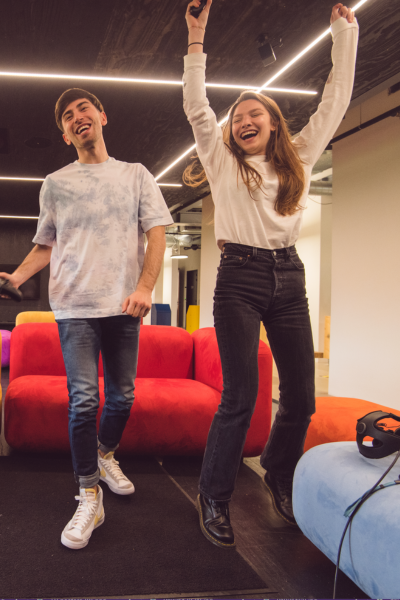

Team Formation
It's been proven that the best innovations were created by diverse teams. That's why, for this hackathon, we are bringing together students from AMS Institute, Codam, and Amsterdamse Hogeschool van Kunst to co-create solutions together.
One hackathon team =
2 Codam students +
2 AMS Institute students +
1 AHK students.
Team's Formation Process:
- Find a partner within your school with whom you'd like to create a pair team;
- Fill in the registration form for yourself and your comrade BEFORE FEB 28, 23:42;
- March 6, 16:00 get to know all the participants and form a team;
- March 13 start co-creating your solution during the hackathon.
Timeline & Program
February 28, 23:42
Deadline for registration
March 6, 16:00
Team Formation Meetup
March 13, 13:00-14:00
Deep Dive in the context of the challenge by Responsible Sensing Lab
March 13, 14:00-...
WORK EAT REPEAT
March 15, 15:00
Deadline for deliverables
March 15, 15:30 - 16:30
Pitching & Awards Ceremony
March 15, 16:30-20:00
Celebratory drinks & pizza

The Partners

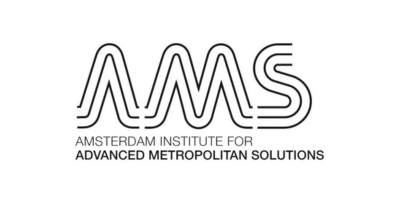
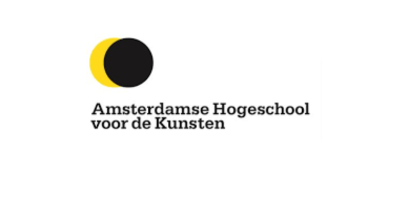
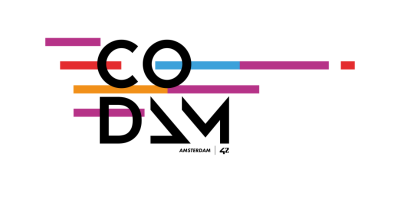
The Partners
Responsible Sensing Lab is concerned with the effects of digital technology on public spaces and infrastructures in the city. They focus on digital technology that is used by the city organization, but also on technology that is used by others but has an effect on the urban fabric (f.i electric vehicles, smart doorbells, etc). They strive to conceptualize how to integrate social values in the design of sensing systems in public spaces.
Amsterdam Institute for Metropolitan Solutions (AMS Institute) is an internationally leading institute located in Amsterdam. The mission of AMS Institute is to develop a deep understanding of the city to design solutions for its challenges and integrate these into the city of Amsterdam. In this institute science, education, government, business partners and societal organisations are working tightly together to create solutions addressing the complex metropolitan challenges a region like Amsterdam is facing. AMS Institute is a collaboration between Massachusetts Institute of Technology, Wageningen University & Research, Delft University of Technology, the City of Amsterdam.
Amsterdam University of the Arts (AHK) trains students for the national and international world of art, culture and heritage. AHK consists of six academies: The Conservatorium van Amsterdam, Netherlands Film Academy, Academy of Theatre and Dance, Reinwardt Academy, Academy of Architecture and Breitner Academy.
Codam Coding College is a peer-to-peer software engineering institution with a world-class curriculum empowering the next leading generation of tech talent. At Codam, students build technical expertise and grow adaptability, autonomy, and empathy, in close collaboration with private and public partners.
